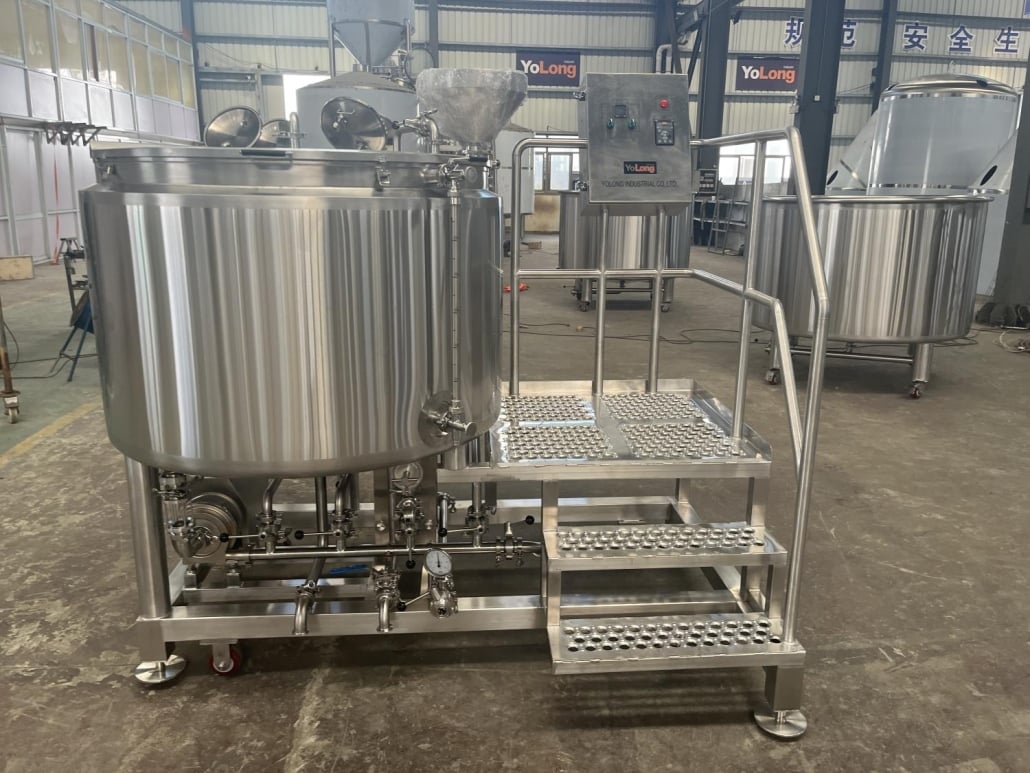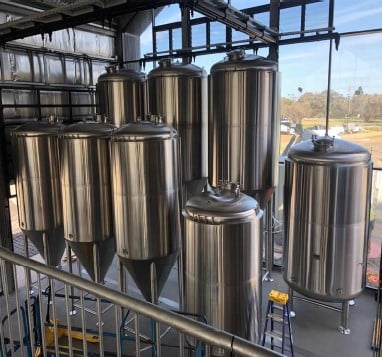Cone Fermenter: A Comprehensive Guide
Overview
A cone fermenter, often referred to as a conical fermenter, is a specialized vessel used in the brewing industry, primarily for fermenting beer. These fermenters are designed with a conical bottom, which facilitates the easy separation and removal of sediment, including yeast and trub (solid particles that settle during fermentation). The unique shape and functionality of cone fermenters make them a preferred choice among homebrewers and commercial brewers alike.
Equipment Guide
Cone fermenters come in various shapes, sizes, and materials. They are generally made from stainless steel, plastic, or glass. Each material has its own advantages and disadvantages, depending on the brewer’s needs and budget.
Materials:
- Stainless Steel: Durable, easy to clean, and does not retain flavors or odors.
- Plastic: Lightweight, affordable, but can scratch easily and may retain odors.
- Glass: Provides a clear view of the fermentation process but is heavy and can break easily.
Sizes:
- Small-scale (5-10 gallons): Ideal for homebrewers.
- Medium-scale (15-30 gallons): Suitable for pilot brewing systems or small brewpubs.
- Large-scale (50+ gallons): Used by commercial breweries for large batches.

Types of Cone Fermenters
| Type | Description | Ideal For |
|---|---|---|
| Basic Cone Fermenter | A simple conical vessel with basic valves and ports for fermentation. | Homebrewers and small batch production |
| Temperature-Controlled Cone Fermenter | Equipped with integrated cooling systems or jackets to maintain precise fermentation temperatures. | Serious homebrewers and small breweries |
| Pressurized Cone Fermenter | Designed to withstand higher pressures, allowing for carbonation and conditioning within the same vessel. | Commercial breweries and advanced homebrewers |
| Automated Cone Fermenter | Features automated controls for temperature, pressure, and other fermentation parameters. | Large-scale commercial breweries |
The Brewing Process with Cone Fermenters
Using a cone fermenter enhances the brewing process by providing better control over fermentation and improving the quality of the final product. Here’s a step-by-step breakdown of the brewing process using a cone fermenter:
- Mashing: Combine malted barley with hot water to convert starches into fermentable sugars.
- Boiling: Boil the wort (unfermented beer) and add hops for bitterness, flavor, and aroma.
- Cooling: Rapidly cool the boiled wort to fermentation temperature.
- Fermentation: Transfer the cooled wort into the cone fermenter and add yeast.
- Yeast Separation: As fermentation progresses, yeast and trub settle in the conical bottom for easy removal.
- Conditioning: Allow the beer to mature, developing flavors and carbonation.
- Packaging: Transfer the finished beer to bottles, cans, or kegs.
Cone Fermenter Specifications: Capacity, Space, Design, and Customization
| Specification | Details |
|---|---|
| Capacity | Ranges from 5 gallons for homebrewing to 100+ gallons for commercial use. |
| Space | Compact design fits into small brewing setups; larger models may require dedicated brewery space. |
| Design | Conical bottom for sediment separation; may include valves, thermometers, and sampling ports. |
| Customization | Options for material, size, additional ports, temperature control, and automation. |
Cone Fermenter Suppliers and Price Range
| Supplier | Price Range | Details |
|---|---|---|
| SS Brewtech | $200 – $2,500 | Offers a range of stainless steel fermenters for homebrewers and small breweries. |
| Spike Brewing | $300 – $3,000 | Known for high-quality stainless steel fermenters with customization options. |
| FastFerment | $100 – $500 | Affordable plastic conical fermenters suitable for beginners and intermediate homebrewers. |
| Blichmann | $400 – $4,000 | Premium stainless steel fermenters with advanced features for serious brewers. |
Installation, Operation, and Maintenance of Cone Fermenters
| Aspect | Details |
|---|---|
| Installation | Requires proper space allocation, especially for larger models; may need professional setup for commercial units. |
| Operation | Easy to operate with basic knowledge; advanced models may require familiarity with automated systems. |
| Maintenance | Regular cleaning and sanitization are crucial; stainless steel models are easier to maintain than plastic or glass. |
How to Choose a Cone Fermenter Supplier
| Criteria | Details |
|---|---|
| Reputation | Research supplier reviews and ratings to ensure reliability and quality. |
| Support | Choose suppliers that offer good customer support and warranty services. |
| Customization | Look for suppliers that provide customization options to meet specific brewing needs. |
| Price | Compare prices to find a fermenter that fits your budget without compromising quality. |
Comparing Pros and Cons of Cone Fermenters
| Aspect | Advantages | Limitations |
|---|---|---|
| Ease of Use | Simplifies yeast and sediment removal; easy to clean. | Initial cost can be higher than standard fermenters. |
| Quality | Improves beer clarity and flavor; provides better control over fermentation. | Requires more space than traditional flat-bottom fermenters. |
| Versatility | Suitable for various fermentation stages and types of beer. | Plastic models can be prone to scratching and odor retention. |
| Durability | Stainless steel models are highly durable and long-lasting. | Glass models are heavy and fragile. |

FAQs
| Question | Answer |
|---|---|
| What is a cone fermenter? | A specialized vessel with a conical bottom used in brewing to separate sediment from the fermenting liquid. |
| Why choose a cone fermenter? | Offers ease of sediment removal, improved beer quality, and better control over fermentation. |
| How do I clean a cone fermenter? | Use appropriate cleaning agents and sanitizers, ensuring thorough rinsing; stainless steel is easier to clean. |
| Can I use a cone fermenter for other beverages? | Yes, cone fermenters can be used for cider, wine, and other fermented beverages. |
| Is a cone fermenter worth the investment? | For serious brewers, the improved control and quality make it a worthwhile investment. |
| What size cone fermenter should I buy? | Depends on your brewing scale; homebrewers may opt for 5-10 gallons, while commercial brewers need larger units. |
| Are there any disadvantages to using a cone fermenter? | Higher initial cost and space requirements compared to standard fermenters. |
Conclusion
Cone fermenters offer significant advantages for brewers looking to improve their brewing process and the quality of their final product. From homebrewers to commercial operations, the versatility, ease of use, and durability of cone fermenters make them a valuable addition to any brewing setup. By understanding the different types, sizes, and materials available, brewers can make informed decisions on the best cone fermenter to meet their needs.
Whether you’re just starting out or looking to upgrade your current system, investing in a cone fermenter can elevate your brewing game to new heights.
Share this entry
Interested in learning more about Brewing Systems including additional details and pricing information? Please use the form below to contact us!
YOLONG BREWERY EQUIPMENT FAQS
- Commercial Brewery / Craft Brewery / Microbrewery / Nanobrewery
- What is The Difference Between Craft Beer and Industrial Beer?
- The Bespoke Differences In Custom Brewing Systems
- Everything You Need to Know About Kettle Souring
- How to Choose Brewing Equipment for Your business?
- How To Choose The-Best Partner To Build Your Commercial Microbrewing System?
- Two Detection Sensors That You Need To Use In Your Brewhouse System
- Remote Control Applications in Brewing Equipment/How does it work?
- How To Clean Your Brand New Brewery Tanks?

